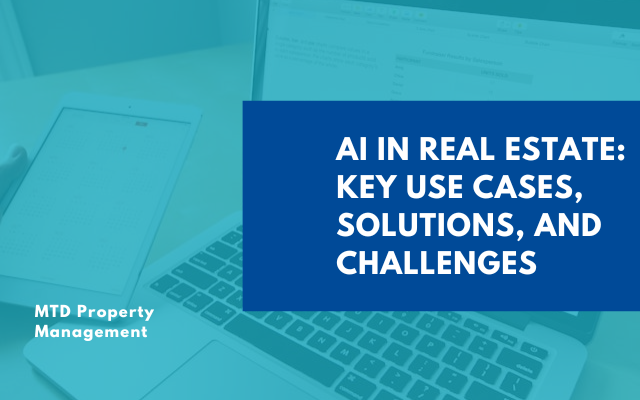
Normal wear and tear in the real estate industry can be described as expected damage that occurs when a property is subjected to normal, everyday use. Such damage does not result from misuse or neglect of the property.
On the other hand, unexpected damage occurs when a property is abused or not properly taken care of. Unexpected damage does not occur from normal circumstances and thus a landlord may be justified to pull funds from a tenant’s security deposit for the purpose of repairing the unit.
In this article, we’ll take a deeper look at what expected and unexpected damages are and how to distinguish between the two. The article will also provide more clarity for property owners on when it is appropriate to charge the tenant for repairs.
The Differences between Expected and Unexpected Damage
What is Expected Damage?
Expected damage or reasonable wear and tear is considered to be damage attributed to the normal day-to-day use of a property. This is a form of depreciation that occurs to the dwelling and its fixtures or appliances over a period of time as a consequence of a tenant’s occupancy.
Expected damage is generally acceptable and it is thought to be inevitable. An example of such damage may include
discoloration of the wall’s paint or fading of floor tiles. A landlord should not hold their tenant accountable for this type of damage because the property was used typically.
What is Unexpected Damage?
Unexpected property damage can be described as that which falls beyond reasonable criteria. In other words, unexpected damage does not occur naturally, but due to abuse or misuse of the property.

This kind of damage may be caused accidentally, from malicious intent or by a tenant neglecting the property. In such instances, the landlord has the right to hold the tenant accountable for the cost of repairs.
Some examples of unexpected damage include the following:
- Structural damage to the property such as a damaged ceiling.
- Broken windows caused by slamming them shut.
- Damage to the property’s plumbing due to carelessness or inadequate maintenance.
- Holes in the carpet from cigarette burns.
Due to the nature of this kind of damage, a landlord would be justified to withdraw funds from the tenant’s security deposit to tend to the property damage.
However, landlords need to be able to distinguish between the two types of damage so as to avoid dealing with legal action from the tenants.
When Should a Landlord Withdraw Funds from a Security Deposit?
A landlord would have reasonable grounds to withdraw funds from the tenant’s security deposit if the damage can be attributed to abuse, misuse or
neglect of the property.
Negligence occurs when a tenant does something careless that harms the property or fails to take necessary actions to
prevent damage. Abuse happens when the tenant deliberately causes harm to the property and misuse is when the tenant uses the property for unintended purposes.
The main factor that separates unexpected damage from reasonable wear and tear is whether or not the damage was avoidable. While some damage may be accidental, the landlord in some circumstances may withdraw the cost of repairs from the security deposit.

When damage is caused by the factors above, the landlord would be eligible to deduct the repair costs from the security deposit. In some cases, however, tenants may dispute these claims in court and local laws will determine whether or not the landlord recovers the costs incurred.
The Importance of Property Inspections in Damage Assessment
If you’d like to keep track of your property’s condition, the best way to go about it is by carrying out routine inspections. Property inspections are beneficial for a number of reasons. Some of these reasons include finding out whether the tenant is honoring the terms of the lease and
identifying issues that can potentially escalate and cause significant damage.
Move-in and move-out inspections are also necessary for comparing the property’s condition before and after it’s occupied by a tenant. When conducting these inspections, it’s necessary for the landlord to take detailed notes for reference purposes. If it is permissible by law, the landlord may also take pictures of the property for additional reference.
These notes and pictures will come in handy when calculating the cost of repairing any property damage. In the event that the damage was unexpected, these records may be used as proof by the landlord to make a claim for the repair expenses.

During inspections, a landlord should also take some time and discuss various issues relating to the property. It is always beneficial for the landlord to outline their expectations when it comes to unexpected damages and the extent of the tenant’s accountability for repair costs.
How Tenant Screening Can Be Used to Avoid Property Damage
Thorough tenant screening is one of the best ways to prevent property damage. By selecting responsible tenants for your property, you can significantly reduce the chances of unexpected damage.
A responsible tenant is unlikely to neglect your property or deliberately damage it. A comprehensive screening process can provide you with valuable insight into a prospective tenant’s behavior and how they would likely treat your property.
For example, you can check the eviction history report to find out if they’ve had prior eviction cases and the condition in which they left the property when they vacated.
You can also contact previous landlords to learn about their experience with the tenant. It always helps to find out more about the prospective tenant before offering them placement. This would help you
find a quality tenant for your property!
Final Thoughts
One of the most important factors when assessing normal wear-and-tear and unexpected damage is being able to recognize whether or not the damage was avoidable! It’s necessary for landlords and property owners to know the difference so as to avoid undergoing litigation with the tenant.
To get the best tenants and protect your investment, we recommend hiring a reputable property management company.
At
MTD Property Management, we offer a number of professional services that make property investment a stress-free journey. Connect with us today to access premier management services for your Chicago property!









